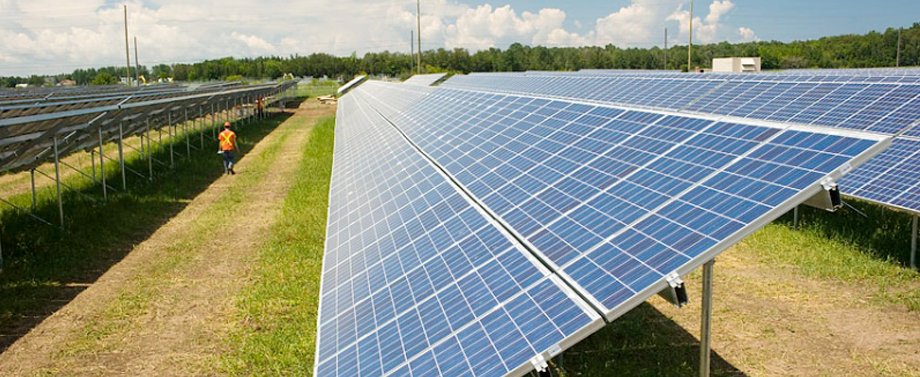 |
Hanwha Q Cells solar panels (Hanwha Q Cells) |
South Korean solar companies may face a bright future this year as the US recently extended a tariff for four more years to keep cheap Chinese products in check.
According to industry sources Friday, the US last week decided to impose a 15 percent tax on imported solar cells and panels for another four years as part of an apparent effort to block the inflow of Chinese-made products.
The US first introduced the tariff to safeguard its domestic solar industry from China, which manufactures roughly 70 percent of the world’s solar panels. The tariff, which started at 30 percent, has gone down to 15 percent this year.
For Hanwha Q Cells and LG Electronics, which have solar cell and panel factories in the US, the extension of the tariff is expected to help them maintain their dominant status in the North American market and spare them from the cutthroat competition with cheap Chinese products.
“It’s good news that Korean companies don’t have to compete against cheap Chinese solar panels. The tariff will allow them to stay competitive in the US market,” an industry official said.
Hanwha Q Cells and LG Electronics face an even brighter future as the US prepares a massive stimulus package to nurture its domestic solar industry.
Within the first half of this year, the US is expected to pass a bill called SEMA, or Solar Energy Manufacturing for America Act. If passed, the bill will provide tax deductions for all solar cells and modules produced on American soil until 2030. In addition, the bill will provide massive subsidies for new factories.
Analysts project that Hanwha Q Cells, for instance, will benefit by 100 billion won ($83.61 million) from SEMA every year. Expecting the bill to pass, Hanwha Q Cells recently acquired a 16.67 percent stake in REC Silicon ASA, a Norwegian firm that manufactures polysilicon in the US. Polysilicon is the basic raw material used to manufacture solar cells and panels.
Meanwhile, OCI is another beneficiary of the US crackdown on Chinese solar products. The Korean company manufactures polysilicon in Malaysia, and has emerged as an alternative to Chinese polysilicon suppliers after the US banned the imports of polysilicon made in Xinjiang, China, for humanitarian reasons. Thanks to the ban, demand for OCI’s polysilicon made in Malaysia saw explosive growth. The firm logged an operating profit of 626.1 billion won last year, a record figure since 2011.
By Kim Byung-wook (
kbw@heraldcorp.com)








